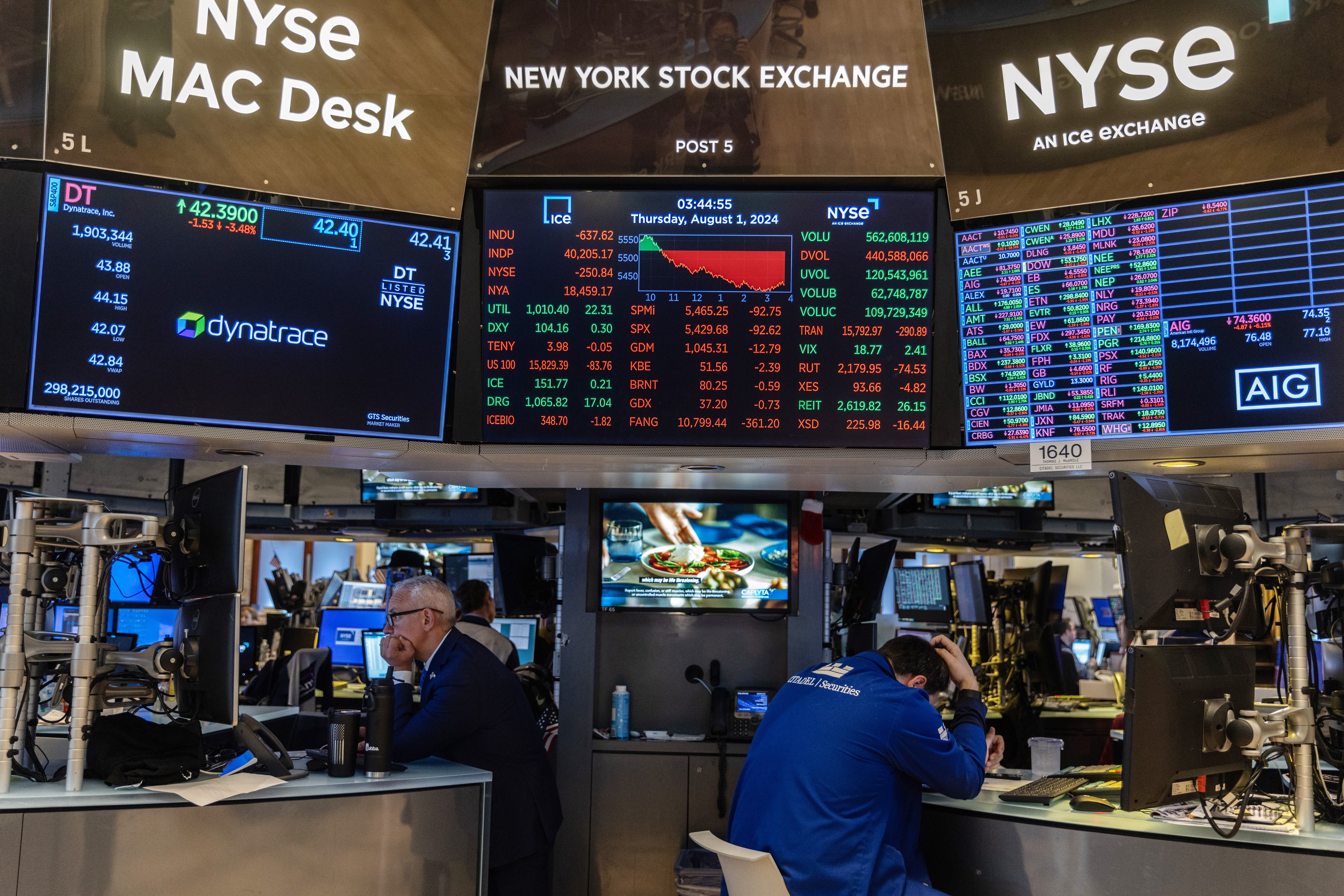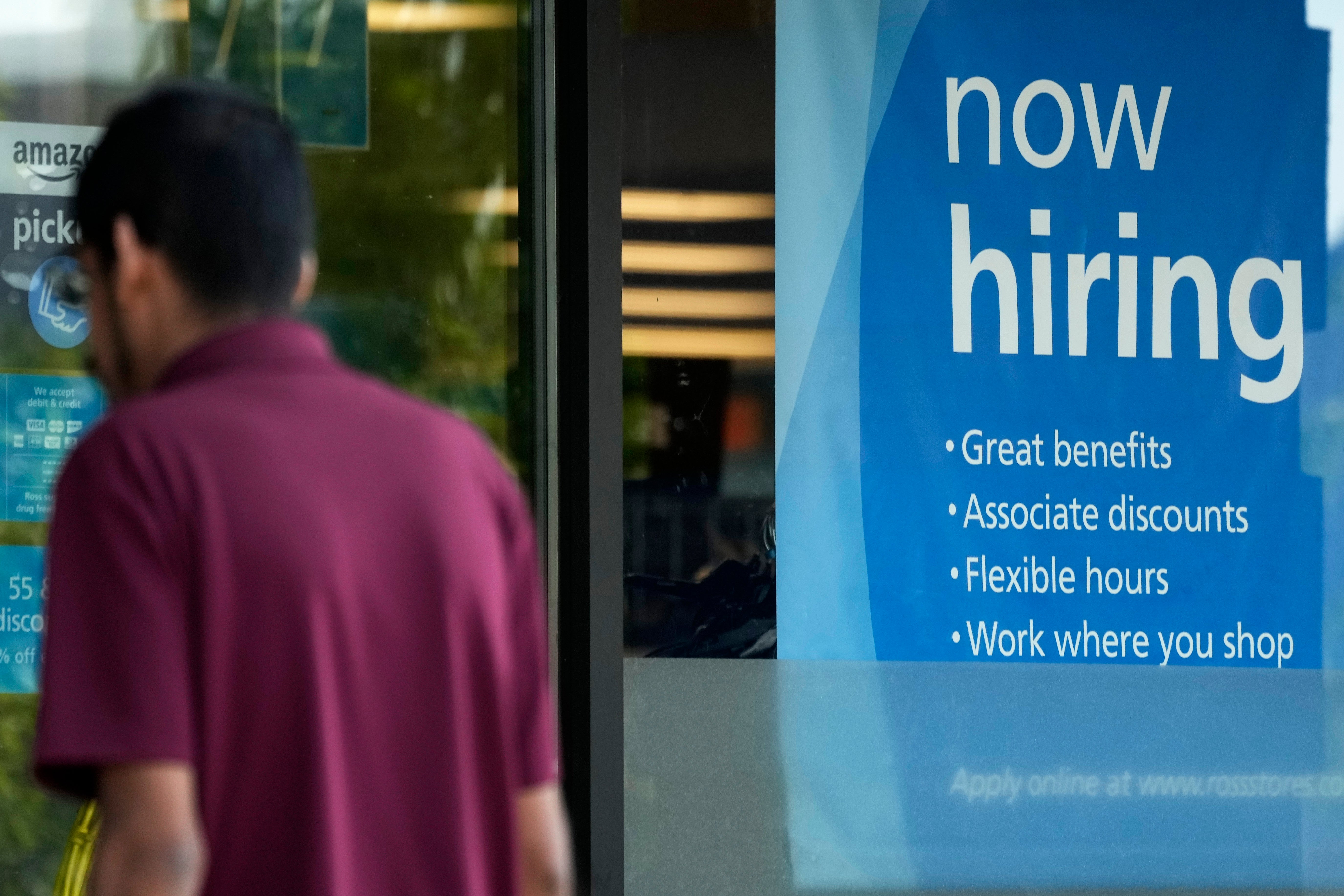Economic recession fears grow after bleak jobs report and unemployment spike
The unemployment rate also saw a jump over the last month, now sitting at 4.3 percent

Fears over a slowing economy heading into the election season mounted on Friday when federal officials released disappointing job numbers.
The Labor Department stated that in July the economy added 1114,000 jobs - a figure that missed expectations, according to the Wall Street Journal. That is compared to the economy adding nearly 180,000 jobs in June.
“Temperatures might be hot around the country, but there’s no summer heatwave for the job market,” Becky Frankiewicz, president of the ManpowerGroup employment agency, said, according to CNBC. “With across-the-board cooling, we have lost most of the gains we saw from the first quarter of the year.”
The cooling job market also saw the unemployment rate rise to 4.3 percent in July, up from 4.1 percent last month.
The federal data is the latest in a string of worrisome economic news that has Wall Street fearing an economic slowdown. Several major companies reported poor earnings for the second quarter earlier in the month.
The stock market took a hit Friday morning after the report with the Dow Jones dropping more than 600 points and the NASDAQ falling 3 percent, or 577 points.

A slowing economy could impact November’s election as economic factors typically weigh heavily on voters.
Over the last 12 months, the US economy has averaged 215,000 new jobs each month. But July’s report was only about half that figure.
Health care led the way with 55,000 new jobs in July, while construction employment added 25,000 people to payrolls.
Information Services saw heavy losses with 20,000 jobs eliminated.
More than 460,000 people without jobs were unable to find work because of July’s weather, according to the Journal. That could be due to the impacts of Hurricane Beryl which slammed into Texas and caused an uptick in unemployment claims in Texas.
“The cooling in the labor market is showing little sign of stabilizing,” Bloomberg economists said in a statement. “We expect the unemployment rate to continue rising, reaching 4.5% by year end.”
However, not all economic analysts were worried about Friday’s news.
“We are still in a good place, but until we see signs of stabilizing, of leveling out, I’m worried,” Claudia Sahm, a former Fed economist who is now the chief economist at New Century Advisors, told the Journal.
Average hourly earnings were also up in July by 3.6 percent, ahead of inflation, but that was the smallest monthly gain in more than two years.

The Friday news comes as more companies report disappointing earnings.
Earlier this week, Wayfair CEO Niraj Shah said a slow down in purchasing of home goods was reminiscent of the 2008 recession.
“Customers remain cautious in their spending on the home,” he said and said credit card data suggests “the category correction now mirrors the magnitude of the peak to trough decline the home furnishing space experienced during the great financial crisis.”
Earlier in July, both Telsa and Alphabet, the parent company to Google, posted disappointing second-quarter results.
Tesla saw a 45 percent drop in profit in the second quarter. Alphabet saw its profits go up, but reported less than expected ad sales on YouTube, worrying analysts.
Join our commenting forum
Join thought-provoking conversations, follow other Independent readers and see their replies
Comments
Bookmark popover
Removed from bookmarks